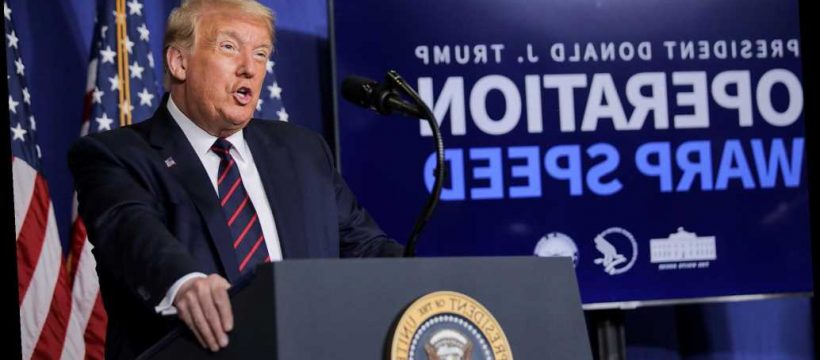“If you want to make God laugh,” Woody Allen once famously said, paraphrasing a Yiddish proverb, “tell him about your plans.”
That isn’t an issue for President Trump, at least not when it comes to health care.
He has been promising a health-care plan since he started running for president, often with superlative adjectives attached, and yet never produced one. His lack of a proposal was a stumbling block in Tuesday’s debate and plays into a broader, long-standing GOP vulnerability on health care.
Polling tends to show that, far and away, the three most important issues to voters are the economy, COVID-19 and health care. Trump leads on the economy and trails on the other two. To the extent that issues play a role in a Trump defeat in November, health care will have had some hand in it, and he has done little to inoculate himself — in fact, he has further exposed himself.
His administration backs a lawsuit that seeks to strike down Obamacare, including its popular protections for people with preexisting conditions. This allows Democrats to say — and they say it all the time — that the president wants to destroy Obamacare.
Never mind that the suit is very unlikely to succeed. The background is that in a previous case, the Supreme Court upheld the individual mandate in Obamacare as a tax. Then, Congress zeroed out the tax. The current case argues that the individual mandate therefore can no longer be upheld as a tax. Furthermore — and this is the real stretch — that if this now-toothless mandate is thrown out, the rest of the law has to go, as well. There is no reason to believe that the conservative justices would undertake this legal adventure.
This makes the politics a worst-of-both-worlds scenario for the White House. By backing the suit, it opens itself up to the attack prior to the election that it will eliminate protections for preexisting conditions, without having any realistic chance of winning when the court takes up the case after the election.
It would help, at least, to have a plan, and that’s Trump’s instinct. But his supposedly imminent health-care plan has become as meaningful as the various versions of “infrastructure week.”
Coming up with a health-care plan isn’t like, say, promising to create 10 million jobs, a pledge that would depend on circumstances not fully under any president’s control. Drafting one, at bottom, requires only a consensus among some wonks, a word processor and a printer.
No one would have bet at the outset that the administration would have in hand two historic Middle East agreements — namely, the United Arab Emirates and Bahrain normalizing relations with Israel — before having one health-care plan. But here we are.
It isn’t as though there aren’t options (and it should be noted that the administration has adopted worthy, piecemeal changes to the health-care system). A plan from the Heritage Foundation is tailor-made to be picked up by the administration. In fact, it has been promoted in an op-ed titled, “A Health Plan for President Trump.”
But the administration has remained divided, with one faction reflecting vintage Tea Party thinking that no Obamacare replacement is necessary. In addition, health-care policy inevitably involves trade-offs that are all politically perilous.
So the path of least resistance is to commit to nothing. The administration has instead offered up an executive order committing to cover people with preexisting conditions. The president has touted this as a historic act, even though it’s only a more official version of Trump’s prior promises.
The president is more populist, both in manner and substance, than his Republican predecessors. But health care is an area where his populism is insufficiently realized. Seeking to repeal Obamacare without bothering to tell people how it’s going to be improved on is what you’d expect from a stereotypical Republican.
God might scoff, but it would be better to have a plan.
Twitter: @RichLowry
Share this article:
Source: Read Full Article
